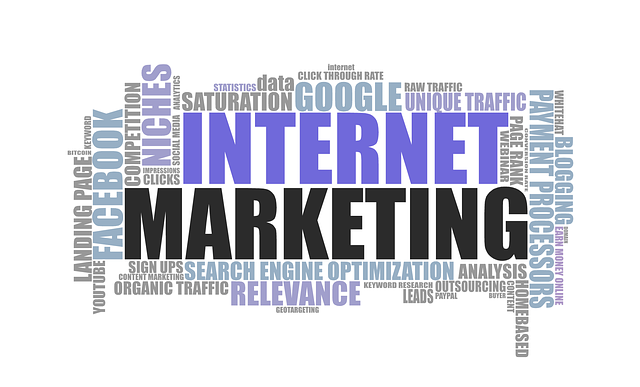Small businesses need to embrace digital marketing to stay competitive online. By understanding SEO, content creation, social media engagement, email campaigns, and paid advertising, they can connect with their target audience. Setting clear goals and targeting based on analytics ensures effective strategies. A well-optimized website is crucial, along with visually compelling elements. Successful businesses leverage digital marketing's evolving landscape, creating engaging content and brand awareness. Email marketing builds customer relationships through personalized communication. Measuring success via KPIs and analytics optimizes campaigns for better ROI and long-term growth.
In today’s digital era, small businesses can no longer ignore the power of digital marketing. This essential strategy allows them to compete with larger brands and reach their target audiences effectively. From understanding basic concepts to crafting compelling content, each aspect plays a crucial role in success. This article guides you through the key elements of digital marketing for small businesses, including setting clear goals, building an online presence, leveraging social media, and measuring growth—all vital steps to thrive in the competitive market.
Understanding Digital Marketing Basics for Small Businesses

Small businesses today must embrace digital marketing to stay competitive in the online landscape. While it might seem daunting, understanding the fundamentals is a powerful first step. Digital marketing encompasses various strategies and channels, including search engine optimization (SEO), content creation, social media engagement, email campaigns, and paid advertising. Each of these tools serves a unique purpose, enabling businesses to connect with their target audience, build brand awareness, and drive sales effectively.
For small businesses, the key lies in tailoring these digital marketing techniques to fit their niche market and budget. SEO, for instance, can improve online visibility and attract organic traffic by optimizing website content and structure. Content creation, such as blogging or video production, engages potential customers and establishes expertise. Social media platforms offer direct interaction with followers while email campaigns nurture leads and foster customer relationships. By strategically combining these digital marketing basics, small businesses can create a robust online presence that competes with larger enterprises.
Setting Clear Goals and Defining Target Audiences

Setting clear goals is a cornerstone of successful digital marketing. Small businesses should define measurable objectives tailored to their unique needs and aspirations. These might include increasing brand awareness, driving sales, or generating leads. By establishing specific, achievable targets, business owners can effectively measure the impact of their marketing efforts and make informed adjustments.
Understanding target audiences is equally vital. Digital marketing allows for precise targeting based on demographics, interests, and behaviors. Small businesses should leverage tools like analytics and customer data to segment their audience and create buyer personas. This targeted approach ensures that marketing messages resonate with potential customers, fostering stronger connections and higher conversion rates.
Building a Compelling Online Presence: Website Optimization

In today’s digital era, establishing a strong online presence is paramount for small businesses aiming to thrive in the competitive market. A compelling website acts as the cornerstone of any successful digital marketing strategy. Optimizing your site for search engines and users alike ensures it not only ranks well on search results but also offers an engaging experience that encourages visitors to convert into customers. From intuitive navigation and high-quality content to mobile responsiveness, each element contributes to building credibility and fostering trust with your target audience.
Effective website optimization involves integrating relevant keywords and phrases naturally throughout your content to enhance search engine visibility. Additionally, regular updates and fresh, valuable information keep the site engaging while signaling to algorithms that it remains active and authoritative. Visuals, such as high-resolution images and videos, further enrich the user experience, making your online presence more memorable and enticing.
Leveraging Social Media Platforms Effectively

Crafting Engaging Content Strategies

In the realm of digital marketing, crafting engaging content strategies is paramount for small businesses aiming to stand out in today’s competitive landscape. It involves creating valuable, relevant, and consistent content that resonates with your target audience across various platforms. Whether it’s through blog posts, social media updates, or email newsletters, each piece should tell a compelling story that aligns with your brand identity. By understanding your customers’ needs and preferences, you can develop content that not only informs but also entertains and inspires them.
To optimize your efforts, integrate SEO (Search Engine Optimization) keywords naturally into your content. This strategic placement enhances visibility in search results, driving organic traffic to your website. Additionally, encourage audience interaction by fostering discussions, soliciting feedback, and responding to comments promptly. Engaging content not only builds a loyal customer base but also positions your small business as an authority in its niche, ultimately contributing to long-term success in the digital marketing arena.
Utilizing Email Marketing to Build Customer Relationships

Email marketing is a powerful tool for small businesses looking to establish and nurture customer relationships in the realm of digital marketing. By leveraging this direct communication channel, businesses can build trust and loyalty with their target audience. Personalized emails, offering tailored content and promotions, create a sense of connection and encourage repeat purchases.
Through automated email campaigns, small businesses can maintain consistent engagement without overwhelming customers. This strategic approach allows for building a solid customer base, as well as gathering valuable insights into consumer behavior. By analyzing open rates, click-throughs, and conversion data, marketers can refine their strategies, ensuring each email resonates with the intended audience.
Measuring Success and Analyzing Data for Continuous Growth

Measuring success is a vital aspect of digital marketing, allowing small businesses to understand their strategies’ impact and make data-driven decisions for growth. By setting clear goals and key performance indicators (KPIs), companies can track their progress effectively. Analytics tools play a crucial role here, providing insights into customer behavior, campaign effectiveness, and return on investment (ROI). For instance, tracking website traffic, conversion rates, and social media engagement metrics help businesses identify what’s working and what needs improvement.
Regularly analyzing this data enables small businesses to adapt their digital marketing efforts continuously. They can optimize content, refine targeting strategies, and allocate resources more efficiently. This iterative process ensures that marketing campaigns remain relevant and effective in the dynamic digital landscape, ultimately driving business success and staying ahead of the competition in the long run.
